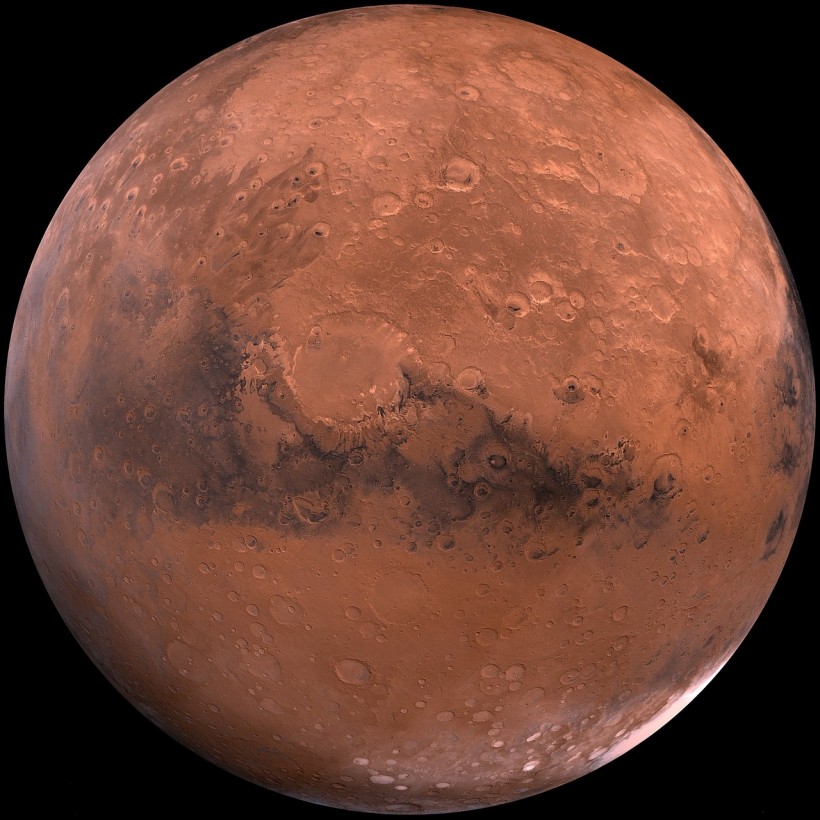Mars is mysteriously rotating faster than normal for reasons unknown, slightly reducing its daytime hours by a small fraction, according to a new study that utilized NASA data in recent years. Scientists involved in the research are not exactly certain about the Red Planet's speeding rotation. However, some have a few ideas behind the Martian mystery.
Just like Earth and Mars, other planets in our Solar System are rotating with varying speeds and angles as they revolve around our Sun. The rotation mechanism of the planets starts as a result of their formation several billions of years ago. In the case of our planet, which is the most observed in terms of cosmic body rotation, the continuous spin is the basis of our concept and measurement of days, weeks, months, and even years.
While the Red Planet is still rotating, scientists in the past have mentioned the potential consequences should a planet completely stops spinning. The said movement also allows our atmosphere and oceans to also protect us from external factors like ultraviolet rays or cosmic radiation, as well as earthquakes and tsunamis.
Mars Rotation Mystery

In the study published in the journal Nature, researchers observed the spin state and deep interior structure of the Martian planet and used radio science data from the U.S. space agency, since monitoring the Red Planet's rotation is challenging and are not directly accessible.
The Nature paper utilized data from the NASA InSight mission to determine that Mars' rotation is accelerating at a speed of 4 milliarcseconds annually. This means that the length of a single Martian day is getting shorter by a faction of a millisecond each year, according to Live Science. The InSight was able to collect the data for more than four years before it ran out of power in December 2022.
Scientists have proposed some theories behind the mystery, with one being that Mars' poles is causing differences in mass distribution due to ice accumulation, as cited by Live Science.
What if the Earth Stopped Spinning?
Since our planet's rotation across the cosmic horizon and revolution around the Sun is crucial to our survival, it is hard not to ask what if the Earth stopped spinning? This terrifying concept yet potential reality has struck our imaginations for decades. For instance, a stationary Earth means there will be a fixed day and nighttime hours in some sides of the world, resulting in potentially catastrophic disasters never seen before.
The possibility that our planet could one day stop spinning was explored in "The Core" movie, wherein a geophysicist that a mysterious forced suddenly caused the Earth's inner core to stop spinning. The film also showed our planet's magnetic field was shattered by cosmic radiation and our atmosphere creating violent storms.
According to the Smithsonian Magazine, The sudden halt of Earth's rotation could send objects flying eastward, with moving rocks and oceans triggering earthquakes and tsunamis, citing a statement from Jim Zimbelman, a geologist at the National Air and Space Museum.
Related Article: Blue Color Found on Mars, Dominates the Other Side of the Red Planet
© 2024 NatureWorldNews.com All rights reserved. Do not reproduce without permission.




![Roundworms with Short Memories 'Stop Forgetting' When Frozen or Given Lithium [Study]](https://1471793142.rsc.cdn77.org/data/thumbs/full/70295/280/157/50/40/roundworms-with-short-memories-stop-forgetting-when-frozen-or-given-lithium-study.jpg)
